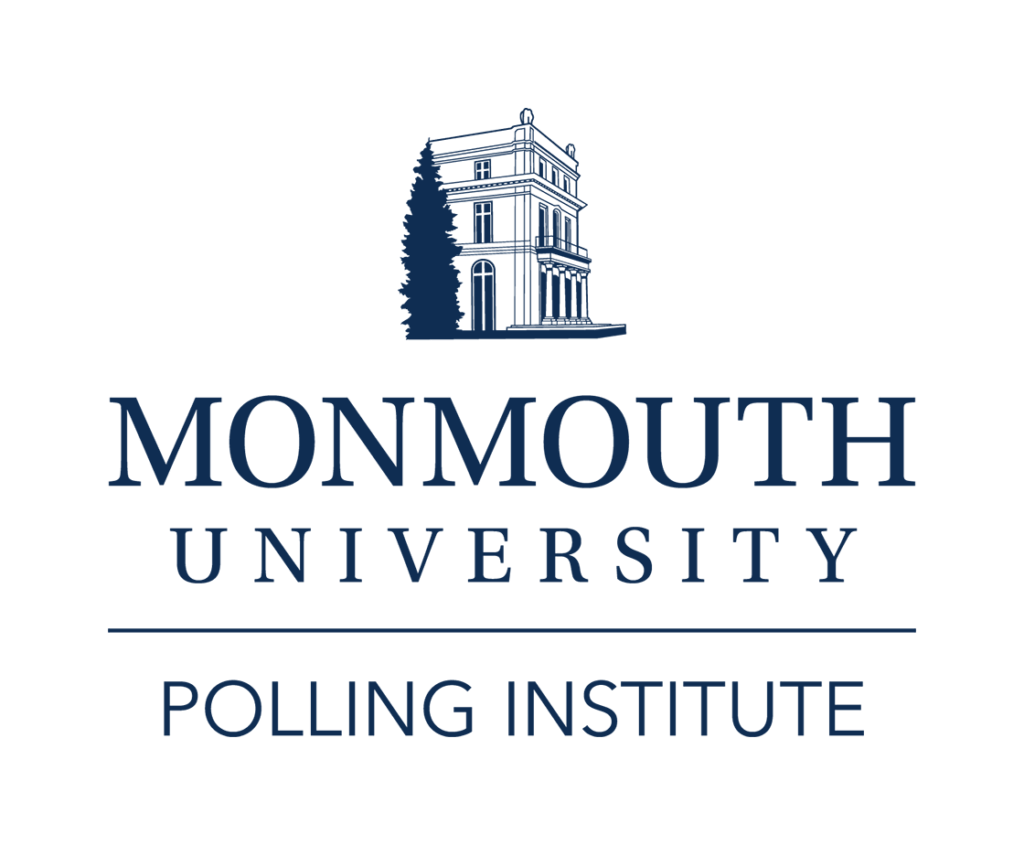West Long Branch, NJ – Political engagement is important to Americans but most find non-political activity to be more rewarding. A national Monmouth University Poll also found that most Americans say the federal government is not doing enough in a wide range of policies that span the ideological spectrum. They see Washington as having a negative impact on most Americans’ lives. The poll looked at key partisan differences and age-related variations of opinion among Millennials (age 18 to 34), Gen Xers (age 35 to 49), Boomers (age 50 to 69), and Seniors (age 70+).
Nearly two-thirds of Americans say it is important for them to get involved in politics, although only 25% say it is very important, while another 40% say it is somewhat important. Gen Xers (71%), Millennials (66%), and Boomers (64%) are more likely than Seniors (58%) to see political involvement as personally important. Despite the fact that most say political activity is at least somewhat important, Americans think they can have more of an impact on the world around them by getting involved in non-political activities (54%) rather than getting involved in politics and elections (28%). Boomers (60%) and Gen Xers (57%) are most likely to feel that non-political activity can have more of an impact, compared to Millennials (49%) and Seniors (43%).
“Most Americans acknowledge the importance of politics but feel that they can make more of an impact by engaging in other forms of civic activity. This may be partly due to the sense that current government dysfunction is harming the average citizen,” said Patrick Murray, director of the independent Monmouth University Polling Institute based in West Long Branch, NJ.
Overall, 50% of Americans say that the current government in Washington has had more of a negative impact on most people’s lives. Just 21% say it has had more of a positive impact and 23% say it has had little impact either way. Republicans (67%) and independents (54%) are more likely than Democrats (32%) to feel that D.C. has been harmful to the average American. Millennials (37%) are a little less likely than other age groups (about 55%) to see the federal government as harmful. Despite the overall downbeat view of Washington, most of those with a negative view now believe the federal government can be improved to have a positive impact on people’s lives (69%). Just 30% of this group feel it is unlikely that Washington’s negative effects can be changed.
The poll asked participants about the U.S. government’s level of effort in five different areas that range the ideological spectrum. Most feel that Washington is not expending enough effort on creating jobs (69%), promoting a moral society (59%), providing a safety net for the poor (58%), and making sure that taxes and regulations are business friendly (54%).
“There is broad public agreement that government needs to be doing more in all areas, but the devil is in the details. Different groups of Americans have varying definitions of what these policies should entail,” said Murray.
There are no significant age or partisanship differences of opinion on government’s efforts to create jobs. For promoting a moral society, Republicans (67%) are more likely than Democrats (52%), and Seniors (68%) are more likely than Millennials (54%), to say that government is not doing enough in this area.
There are few significant age differences for government efforts on the social safety net and being business-friendly, but there are partisan differences. Democrats (73%) are much more likely than Republicans (44%) to feel that Washington is not doing enough to provide a safety net for the poor, while Republicans (64%) are somewhat more likely than Democrats (47%) to say the same about making sure taxes and regulations are business friendly.
While the American public views the federal government as being inactive on a wide range of policy areas, most (54%) say that Washington is actually spending too much effort interfering in what the average citizen can do with his or her life. Another 20% say government is not doing enough and 21% say the level of government interference is about right. Republicans (65%) and independents (59%) are more likely than Democrats (40%) to say that government is interfering too much in the average citizen’s life. There are smaller age differences, with Millennials (47%) being less likely than Boomers (58%), Gen Xers (56%), and Seniors (54%) to see the government as being too interfering.
“Millennials are generally seen as the age cohort with the strongest libertarian streak, but they don’t appear to be all that worried about government overreach. Perhaps it’s because they are more likely to see government as somewhat irrelevant,” said Murray.
The Monmouth University Poll was conducted by telephone from June 11 to 14, 2015 with 1,002 adults in the United States. This sample has a margin of error of ± 3.1 percent. The poll was conducted by the Monmouth University Polling Institute in West Long Branch, NJ.
DATA TABLES
The questions referred to in this release are as follows:
(* Some columns may not add to 100% due to rounding.)
1. How important is it for you personally to get involved in politics – very important, somewhat important, not too important, or not at all important?
| TOTAL | REGISTERED | PARTY ID | AGE | RACE | ||||||||
|
Yes | No | Rep | Ind | Dem | 18-34 | 35-49 | 50-69 | 70+ | White | Black/ | ||
| Very important | 25% | 29% | 14% | 24% | 23% | 29% | 25% | 28% | 24% | 26% | 23% | 30% |
| Somewhat important | 40% | 42% | 34% | 45% | 39% | 38% | 41% | 43% | 40% | 32% | 42% | 36% |
| Not too important | 17% | 16% | 19% | 17% | 16% | 18% | 15% | 16% | 19% | 17% | 17% | 16% |
| Not at all important | 17% | 13% | 31% | 13% | 21% | 15% | 19% | 12% | 17% | 23% | 18% | 18% |
| (VOL) Don’t know | 1% | 1% | 2% | 1% | 1% | 0% | 1% | 1% | 0% | 2% | 1% | 1% |
2. Do you think you can have more impact on the world around you by getting involved in politics and elections or by getting involved in non-political activities? [CHOICES WERE ROTATED]
| TOTAL |
REGISTERED | PARTY ID | AGE |
RACE | ||||||||
|
Yes | No | Rep | Ind | Dem | 18-34 | 35-49 | 50-69 | 70+ | White |
Black/ | ||
| By getting involved in government and elections | 28% | 28% | 25% | 32% | 23% | 30% | 32% | 27% | 21% | 30% | 24% | 36% |
| By getting involved in non-political activities | 54% | 53% | 54% | 50% | 59% | 50% | 49% | 57% | 60% | 43% | 57% | 46% |
| (VOL) Both equally | 7% | 8% | 6% | 6% | 8% | 7% | 9% | 7% | 6% | 5% | 6% | 8% |
| (VOL) Neither have impact | 7% | 7% | 8% | 7% | 7% | 8% | 6% | 4% | 9% | 13% | 8% | 6% |
| (VOL) Don’t know | 4% | 4% | 7% | 5% | 3% | 5% | 3% | 4% | 4% | 9% | 5% | 3% |
3. Overall, do you think the current government in Washington has more of a positive impact or more of a negative impact on most people’s lives, or does it have little impact either way?
| TOTAL |
REGISTERED | PARTY ID | AGE |
RACE | ||||||||
|
Yes | No | Rep | Ind | Dem | 18-34 | 35-49 | 50-69 | 70+ | White |
Black/ | ||
| Positive impact | 21% | 18% | 31% | 9% | 15% | 37% | 27% | 18% | 20% | 17% | 19% | 28% |
| Negative impact | 50% | 55% | 33% | 67% | 54% | 32% | 37% | 55% | 56% | 55% | 57% | 35% |
| Little impact either way | 23% | 21% | 30% | 19% | 25% | 25% | 29% | 22% | 19% | 25% | 20% | 28% |
| (VOL) Mixed/ depends | 2% | 3% | 1% | 1% | 3% | 2% | 3% | 3% | 2% | 1% | 2% | 3% |
| (VOL) Don’t know | 3% | 3% | 5% | 4% | 3% | 3% | 5% | 2% | 3% | 2% | 2% | 6% |
[The following question was asked of those who said NEGATIVE IMPACT: n=539, moe=+/-4.2%]
4. Do you think it is possible to improve Washington to have a positive impact on people’s lives or do you think it is unlikely that anything can be done to improve Washington?
| TOTAL |
REGISTERED | PARTY ID | AGE |
RACE | ||||||||
|
Yes | No | Rep | Ind | Dem | 18-34 | 35-49 | 50-69 | 70+ | White |
Black/ | ||
| Possible to improve | 69% | 71% | 58% | 73% | 66% | 72% | 71% | 71% | 66% | 69% | 70% | 67% |
| Unlikely that anything can be done | 30% | 27% | 42% | 25% | 33% | 27% | 27% | 28% | 34% | 29% | 29% | 30% |
| (VOL) Don’t know | 1% | 1% | 0% | 1% | 1% | 1% | 2% | 1% | 0% | 2% | 1% | 2% |
5. Do you think the U.S. government spends too much effort, not enough effort, or the right amount of effort on each of the following? [ITEMS WERE ROTATED]
Promoting a moral society
| TOTAL |
REGISTERED | PARTY ID | AGE |
RACE | ||||||||
|
Yes | No | Rep | Ind | Dem | 18-34 | 35-49 | 50-69 | 70+ | White |
Black/ | ||
| Too much effort | 17% | 17% | 15% | 18% | 15% | 19% | 15% | 21% | 16% | 14% | 18% | 15% |
| Not enough effort | 59% | 61% | 54% | 67% | 60% | 52% | 54% | 60% | 60% | 68% | 60% | 54% |
| Right amount of effort | 18% | 16% | 24% | 11% | 18% | 23% | 26% | 13% | 17% | 12% | 16% | 24% |
| (VOL) Don’t know | 6% | 6% | 7% | 4% | 7% | 6% | 5% | 6% | 7% | 6% | 6% | 8% |
Making sure taxes and regulations are business friendly
| TOTAL |
REGISTERED | PARTY ID | AGE |
RACE | ||||||||
|
Yes | No | Rep | Ind | Dem | 18-34 | 35-49 | 50-69 | 70+ | White |
Black/ | ||
| Too much effort | 22% | 21% | 23% | 16% | 22% | 27% | 21% | 24% | 23% | 15% | 23% | 20% |
| Not enough effort | 54% | 56% | 48% | 64% | 54% | 47% | 50% | 56% | 56% | 58% | 55% | 52% |
| Right amount of effort | 18% | 18% | 20% | 14% | 18% | 22% | 23% | 14% | 17% | 19% | 17% | 23% |
| (VOL) Don’t know | 6% | 5% | 9% | 6% | 6% | 5% | 6% | 6% | 5% | 7% | 6% | 5% |
Creating jobs
| TOTAL |
REGISTERED | PARTY ID | AGE |
RACE | ||||||||
|
Yes | No | Rep | Ind | Dem | 18-34 | 35-49 | 50-69 | 70+ | White |
Black/ | ||
| Too much effort | 7% | 8% | 5% | 12% | 5% | 7% | 5% | 8% | 9% | 5% | 7% | 6% |
| Not enough effort | 69% | 69% | 68% | 71% | 70% | 68% | 66% | 74% | 68% | 70% | 70% | 67% |
| Right amount of effort | 21% | 20% | 24% | 15% | 21% | 24% | 26% | 16% | 21% | 17% | 20% | 24% |
| (VOL) Don’t know | 3% | 3% | 3% | 2% | 4% | 2% | 3% | 1% | 2% | 7% | 3% | 2% |
Providing a safety net for the poor
| TOTAL |
REGISTERED | PARTY ID | AGE |
RACE | ||||||||
|
Yes | No | Rep | Ind | Dem | 18-34 | 35-49 | 50-69 | 70+ | White |
Black/ | ||
| Too much effort | 22% | 24% | 16% | 36% | 25% | 8% | 19% | 24% | 26% | 19% | 24% | 17% |
| Not enough effort | 58% | 57% | 61% | 44% | 55% | 73% | 58% | 63% | 53% | 61% | 55% | 66% |
| Right amount of effort | 17% | 16% | 19% | 18% | 17% | 17% | 22% | 13% | 14% | 17% | 18% | 15% |
| (VOL) Don’t know | 3% | 2% | 5% | 2% | 4% | 2% | 1% | 0% | 6% | 3% | 3% | 2% |
Interfering in what the average citizen can do with his or her life
| TOTAL |
REGISTERED | PARTY ID | AGE |
RACE | ||||||||
|
Yes | No | Rep | Ind | Dem | 18-34 | 35-49 | 50-69 | 70+ | White |
Black/ | ||
| Too much effort | 54% | 56% | 48% | 65% | 59% | 40% | 47% | 56% | 58% | 54% | 59% | 43% |
| Not enough effort | 20% | 19% | 23% | 21% | 17% | 25% | 26% | 20% | 16% | 18% | 16% | 28% |
| Right amount of effort | 21% | 20% | 23% | 11% | 19% | 30% | 23% | 18% | 22% | 19% | 20% | 22% |
| (VOL) Don’t know | 5% | 5% | 6% | 3% | 5% | 5% | 3% | 6% | 5% | 9% | 5% | 6% |
The Monmouth University Poll was sponsored and conducted by the Monmouth University Polling Institute from June 11 to 14, 2015 with a national random sample of 1,002 adults age 18 and older. This includes 700 contacted by a live interviewer on a landline telephone and 302 contacted by a live interviewer on a cell phone, in English. Monmouth is responsible for all aspects of the survey design, data weighting and analysis. Final sample is weighted for region, age, education, gender and race based on US Census information. Data collection support provided by Braun Research (field) and SSI (RDD sample). For results based on this sample, one can say with 95% confidence that the error attributable to sampling has a maximum margin of plus or minus 3.1 percentage points (unadjusted for sample design). Sampling error can be larger for sub-groups (see table below). In addition to sampling error, one should bear in mind that question wording and practical difficulties in conducting surveys can introduce error or bias into the findings of opinion polls.
POLL DEMOGRAPHICS (weighted) | |||
| 24% Rep | 49% Male | 31% 18-34 |
67% White |
| 44% Ind | 51% Female | 37% 35-54 |
12% Black |
| 32% Dem | 32% 55+ |
15% Hispanic | |
|
7% Asian/Other | |||
Click on pdf file link below for full methodology and results by key demographic groups.




